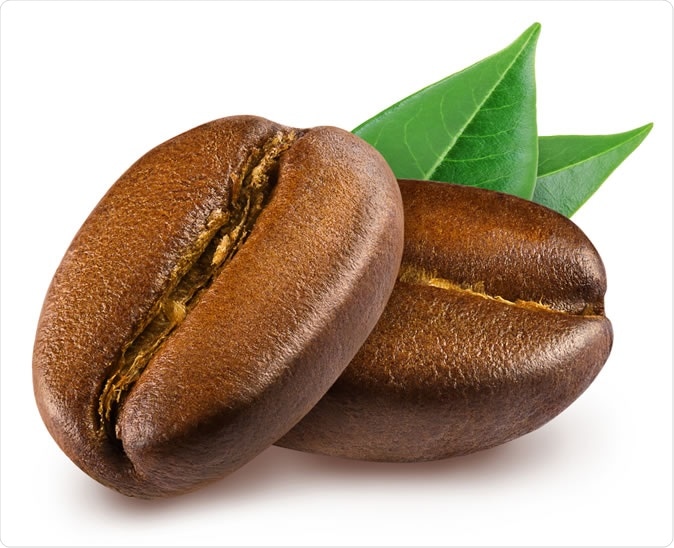Coffee has long been proven to provide many health benefits. Aside from its ability to keep us awake throughout the day, it is packed with antioxidants that ward off free radicals.
Around the globe, coffee is one of the most consumed beverages, with Finland consuming the most coffee in the world per capita, 12 kilograms per capita per year.
Brazil, on the other hand, is the biggest exporter of coffee beans, producing about 5.7 billion pounds of grounds per year. To produce coffee, factories process and roast the husk, while they remove the silverskin, which is left unused. With all the coffee beans processed to meet with the demands of the coffee drinkers worldwide, 1.16 million tons of silverskin is also left behind.
Now, a team of researchers at the University of Illinois wanted to determine if the silverskin and husk of coffee beans have anti-inflammatory compounds, which can be used to formulate new products that can fight chronic disease. Aside from using these leftovers from production for therapeutic purposes, it can reduce the waste products left behind from coffee processing.
Published in the journal Food and Chemical Toxicology, the study aimed to determine and evaluate the inhibitory potential of water-based extracts from coffee silverskin and husk, and their main phenolics on adipogenesis, mitochondrial dysfunction, obesity-related inflammation, and insulin resistance.

Roasted coffee beans. Image Credit: Fotoearl / Shutterstock
Reduced inflammation and enhanced insulin sensitivity
The study shows that water-based extracts from coffee bean skins, including phenolic compounds, namely gallic acid and protocatechuic acid, alleviated fat-induced inflammation in the cells of mice models. Moreover, the extracts helped improve glucose absorption and insulin sensitivity.
With the results of the study, it can pave the way for the bioactive compounds to be used as a part of the diet, like supplements and other products that can prevent obesity-related conditions, such as cardiovascular disease, metabolic syndrome, and type 2 diabetes.
"In my lab, we have studied bioactive compounds from different foods, and have seen the benefits for the prevention of chronic diseases. This material from coffee beans is interesting, mainly because of its composition. It's been shown to be non-toxic. And these phenolics have a very high antioxidant capacity,” Elvira Gonzalez de Mejia, professor of food science in the College of Agricultural, Consumer and Environmental Sciences at the University of Illinois, said.
Extracts’ effect on immune response cells and fat cells
To arrive at their findings, the researchers observed two cells, fat cells (adipocytes) and immune response cells. They also looked at the effect of the water-based extracts on the production and metabolism of adipocytes, and the related hormones. They tested the combined compounds of the extracts and each pure phenolic. Lastly, they examined the effect of the extracts on inflammatory pathways.
During inflammation associated with obesity, the two cells – immune response cells and fat cells, work together. As a result, they get stuck in a cycle or loop, hence, increasing oxidative stress and altering glucose uptake.
The researchers want to block the cycle or loop to reduce or, better yet, eradicate inflammation. This way, glucose uptake will improve and make the cells that produce insulin to become healthy, producing adequate amounts of insulin.
Out of the five pure phenolics extracted from the coffee skin, protocatechuic acid, and gallic acid, showed the most promising effect. They were able to block the fat accumulation in fat cells by triggering lipolysis, which is the break down of fats. Aside from that, they also generated “brown” fat cells. Some of the phenolics were able to stimulate the browning of the adipocytes. These brown or beige fat cells act as fat burners since they have more mitochondria.
What’s more, the phenolics decreased the inflammatory factors secreted from the cells, reducing the risk of having macrophages or inflammatory response cells to interact with the cells. Hence, the process warded off inflammation and oxidative stress.
“Now we know that in the presence of these compounds we can reduce inflammation, reduce adipogenesis, and decrease the 'loop' that helps the two types of cells grow and develop bad compounds that will negatively affect the whole system,” de Mejia explained.
The researchers emphasized that using bean skin for medicinal purposes is a good discovery, but aside from that, using the waste products of coffee processing can also help the environment. After processing, the bean skin usually stays in the field, and it will ferment and grow molds. It can cause problems, even health issues in the future.
Journal reference:
Rebollo-Hernanz, M., Zhang, Q., Aguilera, Y., Martin-Cabrejas, M., and Gonzales-de Mejia, E. (2019). Phenolic compounds from coffee by-products modulate adipogenesis-related inflammation, mitochondrial dysfunction, and insulin resistance in adipocytes, via insulin/PI3K/AKT signaling pathways. Food and Chemical Toxicology. https://www.sciencedirect.com/science/article/pii/S0278691519304612?via%3Dihub